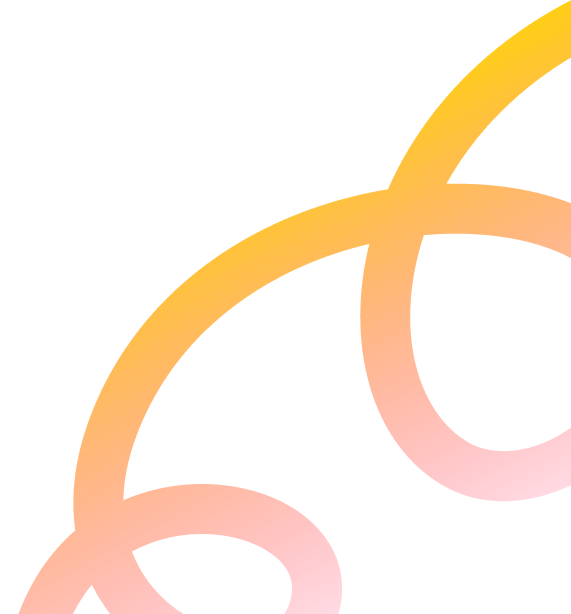
How To Conduct An Interview: From “Hello” To “Hired”
The applications are rolling in—are you ready to hire?
Knowing how to interview someone is a skill. Polishing your tools as an employer can make the process less stressful and more productive for everyone involved. Finding the right fit starts with knowing how to conduct an interview effectively.
We’ve created a step-by-step guide that’ll make the search for a unicorn candidate feel like a glide down the rainbow. Well, something like that, anyway.
Step #1: Prepare for the Interview
Spoiler: interviewers need to prepare for interviews, too!
It all starts with adequate preparation. You have to make the most of the few minutes you will have with the candidate. When you strategically organize your questions and the overall flow ahead of time, you’re positioning yourself to succeed.
Planning an effective sequence also contributes to a better interview experience for the candidate. Your professionalism (or lack thereof) will reflect on your company. Keep this in mind as you read this comprehensive guide on how to interview someone.
Create a Pre-Interview Checklist

Identify the key skills, qualifications, and experience needed for the position
If you want to find exactly what you’re looking for, you have to know what you’re looking for. Being familiar with the skills, qualifications, responsibilities, and experience the position requires helps you stay on track as you conduct an interview.
Develop questions based on the job requirements
It’s important to tie interview questions to job requirements to assess each skill you’re looking for. Focusing on behavioural and situational questions will give you insight into how a candidate thinks through problems. Don’t forget to compile a list of generalized questions to know them better!
→ Related article: Common Behavioural Interview Questions
→ Related article: Common Situational Interview Questions
Review the candidate’s resume/cover letter/assignment ahead of time
Don’t waste time during your interview asking the person questions that their resume and cover letter already answered. Doing your research ahead of time will allow you to spend more time diving deeper into their skillset.
Set up the interview location, including any necessary equipment and technology, etc.
Ensure the interview location is ready to accommodate candidates and that the necessary equipment and technology are up and running ahead of time. The last thing you want is tech issues when you’re trying to conduct an interview.
Manage stress levels for both you and the candidate by creating a calm and conversational atmosphere
Break the ice by keeping the atmosphere calm and conversational during the interview. As far as interview preparation tips go, this one is huge.
Present the company and yourself professionally
You also need to make a good first impression. Your candidates evaluate your company as a potential employer during the interview—presenting professionalism during the process is essential.
Step #2: Determine the Best Type of Interview
Some types of interviews are better suited for different types of jobs. Working with a reliable recruitment agency like Ad Culture at this stage of the process can be especially helpful, as their expert recruiters can figure out exactly what type of interview is best for that special someone you think could fill your vacancy.
Traditional Interview
We’ll call this one old reliable. This is an interview where a candidate sits down with a solo interviewer to answer a series of prepared questions.
- One-on-one conversations are typically less stressful for candidates
- Fewer perspectives limit the scope and depth of the interview
Panel Interview
This is one of the classic types of interviews with a twist. It consists of multiple panel members from the team or department who assess a candidate’s competencies all at once. This style of interview is best when recruiting for full-time positions that require plenty of interaction as it gives you a better perspective on their dynamics.
- Reduces interviewing and hiring bias
- Allows the candidate to show off their social skills
- Can be stressful for the candidate
- Requires several staff members to take time out of their day

Group Interviews
The more the merrier, right? This interview method involves interviewing multiple candidates at the same time as a group and is best for employers looking to hire a large number of employees quickly.
- Reduces time and cost of hiring
- Allows you to compare candidates at the same time
- Enables you to see candidates’ skills in action
- Could create conflict between candidates
- Not every type of personality will shine
- Less time to get to know each candidate’s background
Semi-structured Interview
This one is for the “go with the flow” people in the room. This kind of interview involves a set of structured questions designed to trigger unscripted dialogue.
- Strikes balance between scripted and unscripted responses
- Allows for a more personalized and organic interview flow
- Potential for bias given the inconsistency of questions
Unstructured Interview
Welcome to the interview wild west. This spontaneous interview process does not involve structure, patterns, or arranged questions—no formalities to expect. Yee haw!
- A very flexible setup where ideas and topics can flow
- Could help respondents feel more at ease
- Makes it challenging to compare candidate data
- Requires a trained and experienced interviewer
Step #3: Set the Candidate Up for Success
You’re looking for someone who will thrive throughout the interview process and beyond—setting them up for success matters!
Build Rapport
You can’t hire top-notch talent without building rapport.
When you conduct an interview, you have to show them you’re a team worth joining. Make the room comfortable, be punctual, and offer the candidate water—this is how to start an interview as a recruiter. Being friendly can work wonders!
→ Related article: How to Make People Want to Work for You
Ensure They’re Always Well-Informed
One of the most vital aspects of learning how to interview someone is ensuring candidates are well-informed about the entire process. Someone should always walk away from your initial interview understanding the:
- Hiring timeline;
- How many stages are involved in the hiring process;
- The format and structure of each stage;
- The types of questions they’ll be asked; and
- Who they’ll be meeting with at each stage.
→ Related article: 9 Stages of Recruitment Process

Step #4: The Art of Asking Good Interview Questions
A good interview should be like a conversation—not an interrogation.
Working with a recruitment agency like Ad Culture can help ensure your candidates are asked the right questions. Check out some of our modern interview techniques and sample questions below that are sure to generate good responses!
Open-Ended Questions
As you learn how to interview a candidate for a job, you’ll come to see the value in asking open-ended questions.
They are a great way to start an interview because they lead to more detailed answers while demonstrating a candidate’s communication skills, thought processes, and critical thinking abilities. Dig into the “why,” “how,” and “what” to learn what makes someone tick!
Sample Questions
- Where do you see yourself in the next five years?
- Which of your accomplishments are you most proud of?
- What could your current employer do to be more successful?
⚡ PRO TIP: Avoid asking close-ended questions. A simple “yes” or “no” response won’t give you anything meaningful to work with!
Behavioural Questions
These interview questions focus on a candidate’s past experiences to get a better understanding of how they behave in particular situations.
Sample Questions
- What’s the most interesting thing about you not on your resume?
- Share an example of when you took a leadership role for a team.
- How would you persuade someone on your team to agree with your point of view?
Situational and Hypothetical Questions
You know your workplace best. If there are situations that people find challenging to navigate, why not see how someone new might handle them? Situational and hypothetical questions are perfect for doing exactly that.
Sample Questions
- How did you handle an instance of being given too much work with not enough time to complete it?
- How do you handle the stress of dealing with difficult clients?
Ask About Their Work Experience
This is an avenue to explore follow-up questions to any new information they share and also a chance to get answers that go outside your standardized set.
Sample Questions
- What’s the biggest lesson you’ve learned from your previous jobs?
- Do you have any regrets involving your previous work experience?
- Why did you leave your last job?

Step #5: Avoid These “Bad” Interview Questions
Not all open-ended questions provide value. The best methods of interviewing don’t waste time and energy on questions that don’t help you narrow down your shortlist. Never ask someone these “bad” interview questions that can negatively affect the candidate’s view on your company:
- What is your biggest weakness?
Who is actually going to answer this question honestly? Someone trying to sell themselves in an interview won’t openly admit their flaws.
- Have you applied to any other companies?
You know the answer to this! The job market is competitive, so calling someone out or making them anxious about doing this is not a great start. Instead, focus on selling them why they should choose your company if you decide to offer them the job.
- What is your current salary?
Finances are private. Asking someone this question is inappropriate, and will likely put them on edge for valid reasons. You don’t really need to know this, anyway.
Never Ask Someone These Illegal Interview Questions
When learning how to interview someone, familiarizing yourself with illegal interview questions is essential to avoiding hiring disasters.
- How old are you?
- Where do you live?
- Are you a native English speaker?
- What is your marital status?
- Do you plan to have a family?
- Do you practice a particular religion?
- Have you ever been arrested?
- What political issues do you feel strongly about?
Step #6: Pay Close Attention to the Details
You have one mouth and two ears for a reason—interviews should be a give-and-take balance. Talk, listen, relate, but most importantly, pay attention to the details.
Be An Active Listener
Show someone you’re listening during an interview by using these body language cues:
- Maintain eye contact;
- Use your eyes and eyebrows to express enthusiasm;
- Smile naturally at appropriate times;
- Nod your head to show that you agree; and
- Use subtle hand gestures sparingly.
Take Careful Notes
Take note whenever the candidate says something significant. You can then review these later. Employ a note-taker if needed.
Use the 80/20 Rule
The best methods of interviewing maintain the 80/20 rule of listening to talking. When you give the candidate leeway to do more of the talking, you’ll have much more information at your disposal to inform your decision.
⚡ PRO TIP: Keep the 80/20 rule of listening and speaking in mind. Allowing the candidate to speak more than you do allows their personalities and skills to shine through. This also gives you more details and information to base your decision on.
Invite The Candidate To Ask Questions
Encouraging candidates to ask questions shows that you value their concerns. Take this opportunity to provide information about the position and company culture.
Note Any Red Flags in the Candidate
The interview process can often reveal red flags—take note of these right away. Someone doing the following should trigger alarms:
- Arriving late for the interview;
- Lack of effort (e.g. incomplete documents, dressed inappropriately);
- Lack of eye contact;
- Doesn’t have any knowledge about your company;
- Has no questions about the role or your company;
- Bad-mouthing a previous employer; and
- Can’t prove their mentioned skills or qualifications through their answers during the interview.

Step #7: Evaluate and Compare Candidates
It’s time to compile a high-level overview of the applicants with your interview notes!
The experts at Ad Culture can help here, too. Our team compares candidate qualifications with the job requirements and interview results. You might also want to consider additional assessment methods at this point, such as reference checks.
Let’s Get Serious About Overcoming Bias
Everyone has unconscious biases. As an employer, you need to make yourself aware of yours to ensure they don’t sabotage your interview process. The last thing you need is to let them cloud your opinion.
These biases come in all shapes and sizes. Maybe it’s having a halo effect for degrees from prestigious universities—or even worse, the one you attended—or quickness to dismiss candidates based on certain physical traits.
Constantly looking for “culture fits” might seem like a great idea because the new employee will “blend right in,” but the truth is far from it. Companies with a diverse workforce perform 35% better than those without—look to hire someone outside your typical mould!
→ Related article: 5 Best Workplace Diversity & Inclusion Practices
Step #8: Provide Feedback
Applicants will appreciate being kept in the loop after their interview.
Show that you respect someone and value their time by sending out emails with updates. You could also offer constructive feedback to the unsuccessful candidates by highlighting their strengths and noting areas for improvement.
⚡ PRO TIP: Always keep candidates in the loop regarding the status of their application-whether it’s positive or negative. How you treat applicants during the recruitment stages says a lot about the values of your company.
Interview Tips and Tricks for Employers
Did you really think we’d leave you without one more cool list? Elevate your recruitment process even further with these interview tips and tricks:
Standardize Your Interview Questions
While not every stage of the interview process should use consistent questions, it’ll be helpful to standardize at least one stage to effectively compare and contrast answers between candidates.
Make the Interview Process More Difficult
Candidates who go through a more challenging interview process are most likely to perceive the company as having high standards. Challenge communicates how highly you value finding great fits for jobs when interviewing someone.
Add challenge the right way by:
- Don’t just ask the same questions to every candidate, keep them varied (e.g. behavioural, hypothetical, and situational);
- Requiring a role-specific assignment;
- Conducting a panel interview; and
- Including a presentation stage (e.g. sample project pitches relevant to the position).
Soft Skills vs. Hard Skills Assessment
Soft skills refer to personality traits such as communication, time management, and problem-solving. On the other hand, hard skills involve more technical knowledge and training. Assessing applicants in both fields will help you find more well-rounded employees.
Discuss Compensation
Somewhere down the road of the interview process, you can’t forgo discussing compensation. Just like how companies have plenty of standards during the hiring process, applicants also deserve to know early on if the remuneration matches their standards.
→ Related resource: Total Compensation in Recruitment
Practice Your Interview Skills
The best way to build self-confidence in your job interview skills is by practicing them with someone you trust. Use it to get better as necessary. Practice makes perfect when it comes to learning how to interview someone!
⚡ PRO TIP: Leverage the expertise of a reliable recruitment agency for a smooth hiring process. You’ll welcome star employees to your team in no team-with minimal effort from your end!
Simplify the Interview Process with Ad Culture!
Now that you know how to conduct an interview, it’s time to find your next unicorn. Or, better yet, you could just leave it all to Ad Culture. Why learn how to interview someone when we can do an amazing job for you?
Our recruitment agency specializes in matching talented individuals with companies where they’ll fit perfectly. Equipped with years of advertising and digital marketing experience, we know an impressive candidate worth the offer when we see one—and we’ll be sure to hand them over to you on a silver platter, with contracts signed and sealed.
So sit back and leave the interview process to us. Contact Ad Culture today to get started!








